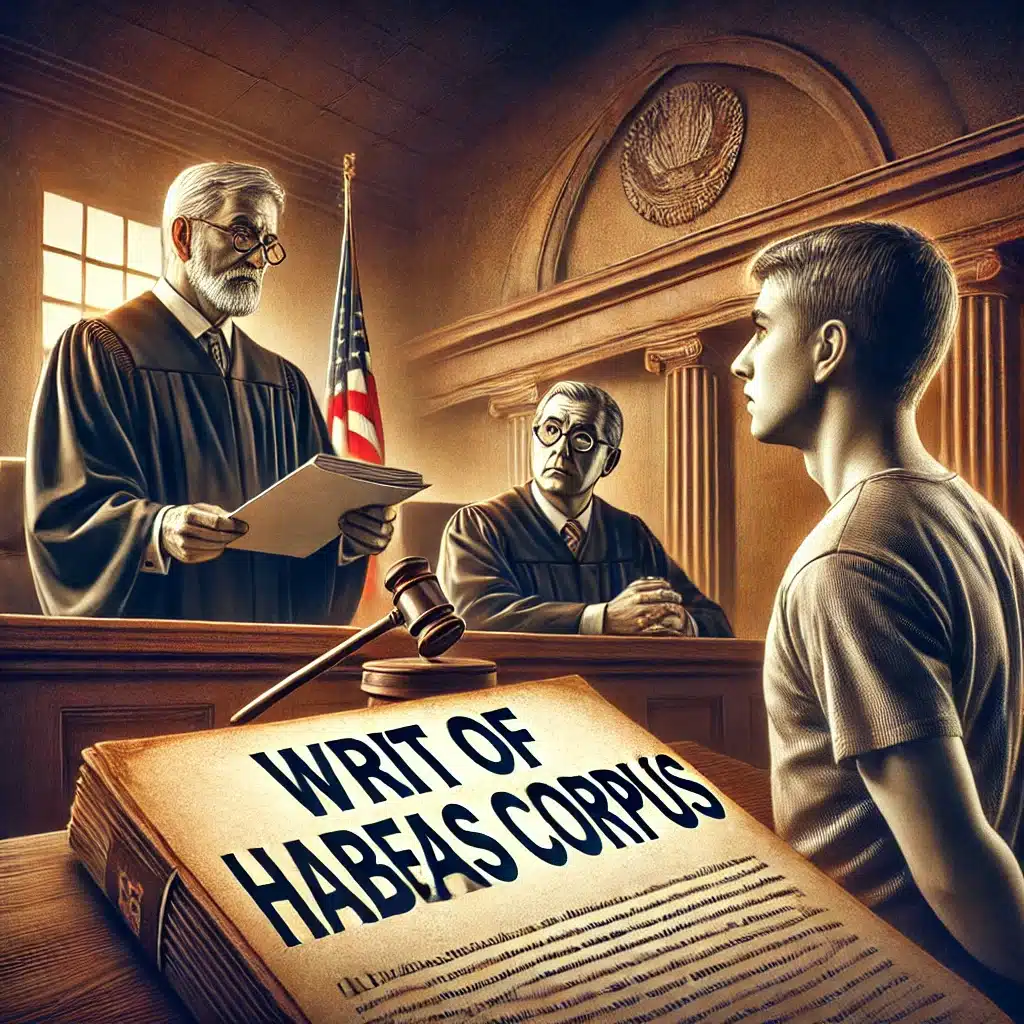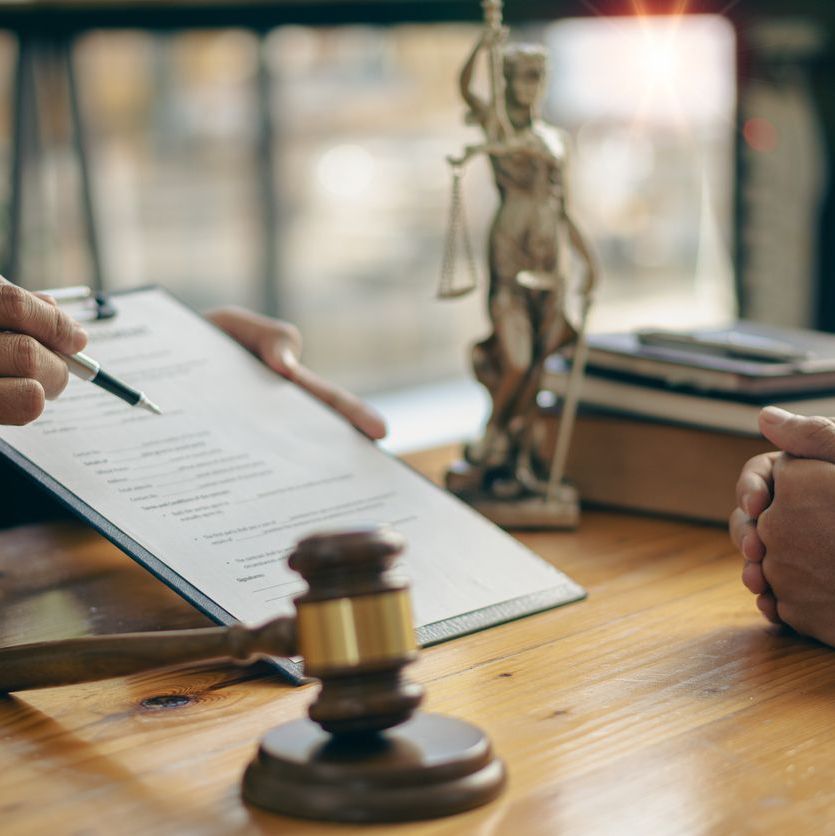Lawful Experience on Habeas Corpus: Attorney Solutions and Assistance
Lawful Experience on Habeas Corpus: Attorney Solutions and Assistance
Blog Article
Recognizing the Role of a Post-Conviction Legal Representative in Seeking Justice After a Criminal Sentence
In the complicated landscape of post-conviction legal process, the function of a post-conviction lawyer is essential in navigating the course to justice after a criminal conviction. Beyond the confines of a test, these attorneys involve in a multifaceted approach intended at discovering brand-new proof, challenging legal errors, and advocating for their customers' rights. The complexities of post-conviction work require a blend of legal acumen, investigatory abilities, and tactical thinking to decipher the complexities of an instance and seek methods that might have been forgotten or underexplored. As the pursuit of justice expands past the boundaries of preliminary process, the role of a post-conviction attorney emerges as a beacon of expect those looking for to fix injustices and recover their rights within the lawful system.
Post-Conviction Lawyer's Investigative Job
Post-conviction lawyers take part in thorough investigative work to reveal new proof, step-by-step mistakes, or misbehavior that could possibly result in overturning a sentence. This investigative stage is vital in the post-conviction procedure as it aims to identify any kind of ignored details or legal missteps that might have impacted the end result of the initial trial. Post-conviction lawyers look into situation files, witness testaments, and legal paperwork with a fine-tooth comb, looking for any kind of discrepancies or abnormalities that could be premises for appeal.
Through extensive examination, post-conviction attorneys intend to shed light on potential injustices that may have occurred during the initial trial. By looking at every facet of the legal process, post-conviction lawyers function tirelessly to reveal any aspects that may have influenced the judgment.
Crafting Appeals and Petitions
In the pursuit of justice after a conviction, knowledgeable lawyers meticulously craft appeals and requests to existing engaging disagreements for the reconsideration of legal choices. Crafting appeals and petitions calls for a deep understanding of the legal system, interest to detail, and strategic thinking. Post-conviction attorneys assess test records, recognize prospective mistakes or violations of civil liberties, and develop legal debates to challenge the conviction or sentence.
When crafting a charm, lawyers concentrate on highlighting lawful errors that may have affected the end result of the instance. They research situation law, statutes, and legal criteria to sustain their debates. Petitions, on the various other hand, might entail presenting brand-new evidence that was not offered throughout the test or demonstrating adjustments in the regulation that call for a testimonial of the conviction.
Moreover, post-conviction attorneys must abide by rigorous procedural regulations and target dates when filing appeals and requests. They should offer their disagreements plainly and persuasively to convince the court to approve alleviation to their clients. With careful crafting of allures and petitions, post-conviction attorneys aim to protect justice for people who have actually been wrongfully founded guilty or unjustly punished.

Seeking Post-Conviction Alleviation
Post-conviction relief includes an array of lawful devices designed to challenge the credibility of a conviction or sentence. Post-conviction attorneys play an important function in navigating these complicated treatments, ensuring that all lawful options are checked out to rectify injustices that may have occurred during the trial or sentencing phase.
One usual kind of post-conviction relief is filing an application for post-conviction alleviation, usually based on cases of inefficient support of advice, prosecutorial transgression, freshly found proof, or constitutional offenses. Experienced post-conviction attorneys have the skills and expertise needed to determine sensible legal claims, conduct examinations, and present engaging arguments to protect alleviation for their clients.
Using Forensic Evidence
When testing a sentence or sentence, the tactical use of forensic evidence can be a powerful tool in post-conviction legal process. Forensic proof includes a wide variety of scientific methods used to check out criminal activities and develop facts in court. Post-conviction lawyers can leverage forensic proof to challenge the legitimacy of sentences by providing brand-new clinical findings that were not offered during the original test.

Taking Part In Sentence Alterations
Post-conviction lawyers may discover the opportunity of sentence alterations as a lawful avenue to deal with out of proportion or unfair sentences bied far in criminal situations. Sentence alterations include looking for changes to the terms of an offender's sentence after a conviction has occurred. These adjustments can include minimizing the length of a sentence, modifying the sort of punishment enforced, or discovering different sentencing options.
Post-conviction lawyers can seek sentence adjustments via numerous kentucky federal lawyers lawful devices, such as submitting movements for sentence decrease, appealing for thoughtful release, or discussing appeal bargains for decreased sentences. They should meticulously review the situations of the case, analyze the legal premises for looking for an alteration, and present engaging debates to the court sustaining the requirement for a modified sentence.
Participating in sentence alterations requires a comprehensive understanding of criminal law, punishing guidelines, and the details treatments involved in looking for post-conviction alleviation. Post-conviction attorneys play an essential function in advocating for reasonable and simply outcomes by difficult sentences that are unduly severe or do not straighten with the principles of justice.
Final Thought
To conclude, the role of a post-conviction legal representative is important in looking for justice after a criminal sentence. Through investigatory work, crafting charms and petitions, seeking post-conviction relief, using forensic proof, and involving in sentence adjustments, these lawyers play a crucial role in promoting for their customers and guaranteeing that their legal rights are maintained within the criminal justice system. Their devotion and know-how are important in navigating the complexities of post-conviction process and accomplishing a reasonable end result for individuals dealing with criminal sentences.
Report this page